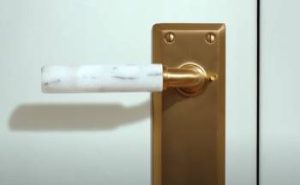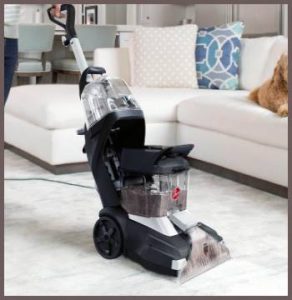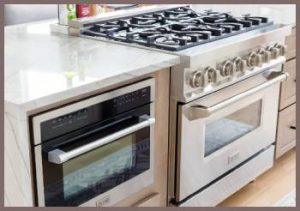When it comes to dust extractors, two names often come to mind – Festool and Makita. Each brand carries its unique characteristics and defining features. They’re both trusted names in the industry, but which one stands out when put head-to-head?
Let’s dive into the nitty-gritty of Festool vs Makita dust extractors and analyze their pros and cons.
A Brief Comparison Table
| Feature | Festool | Makita |
| Filter Efficiency | HEPA filter capturing 99.97% of particles down to 0.3 microns | Automatic filter cleaning |
| Noise Level | Low noise levels | Higher noise levels compared to Festool |
| Versatility | Handles both wet and dry materials | Primarily for dry materials |
| Build Quality | Premium build with unique bag design | Durable build with plastic container and metal castors |
| Price | Higher-end pricing | More affordable, offering value for money |
| Size | Some models can be bulky | Compact and mobile |
| Dust Bag Size | Large capacity | Smaller bags, requiring more frequent changes |
| CFM Ratings | Varies based on model | High CFM ratings for efficient dust extraction |
| Class Options | Offers L, M, and H class options | Offers L, M, and H class options |
| Special Features | Some models offer features like Bluetooth connectivity | Primarily focused on function and durability |
Festool Dust Extractors: The Pros
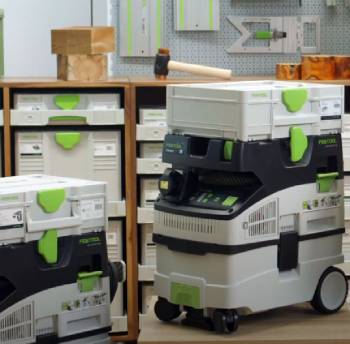
Festool dust extractors are known for their innovative technology and premium build. One of the most striking features of Festool is their HEPA filters, which capture 99.97% of particles down to 0.3 microns, ensuring a clean and safe workspace. They also boast a unique bag design that allows for easy and mess-free disposal of dust.
Festool’s dust extractors are incredibly versatile, handling both wet and dry materials. Plus, they’re compatible with a wide range of tools, making them a handy choice for any workshop.
Now, let’s talk about noise. Festool dust extractors are indeed quiet. They have a low decibel rating, ensuring they won’t cause a ruckus while you’re trying to concentrate on your work.
Festool Dust Extractors: The Cons
Despite the numerous advantages, there are a few drawbacks. For one, Festool dust extractors can be quite pricey, often leading people to question, “Are Festool dust extractors worth it?” While the quality and features justify the cost for many, it can be a significant investment, particularly for hobbyists or small-scale users.
Another potential issue is the size. Some users find Festool dust extractors to be bulky, making them less ideal for smaller workspaces or mobile applications.
Read More: Differences Between Miele CX1 And C3
Makita Dust Extractors: The Pros
Shifting focus to Makita, these dust extractors are praised for their durability and value for money. They’re built to last and designed with the user in mind.
Makita dust extractors come with a sturdy plastic container and metal castors, ensuring both durability and mobility. They also offer automatic filter cleaning, which maintains optimal suction performance and prolongs filter life. Moreover, they come in both L and M class options, giving you the flexibility to choose based on your needs.
What about the CFM (Cubic Feet per Minute)? This is where Makita shines. Their dust extractors offer one of the best CFM ratings for dust collection in the market, providing efficient and effective dust extraction.
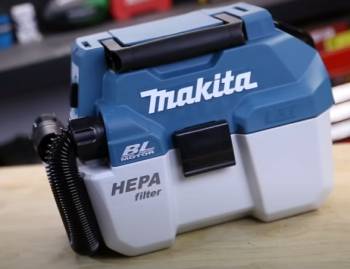
Makita Dust Extractors: The Cons
However, Makita isn’t without its downsides. While they offer great performance, some users have pointed out that their noise levels can be a bit high compared to other brands, like Festool.
The filter system in Makita dust extractors, while efficient, can be a little complicated to clean manually, requiring some time and effort. Additionally, their dust bags are smaller than those of some competitors, requiring more frequent changes.
Frequently Asked Questions (FAQs)
This largely depends on your individual needs and budget. Festool dust extractors offer high-quality performance, versatile use, and innovative features. However, they come with a higher price tag. If these factors align with your needs, then yes, they are worth it.
The highest class dust extractor is the H (High) class, designed to handle hazardous dust. Both Festool and Makita offer H class extractors, though they’re typically used in more specialized or industrial settings.
The main differences lie in their capacity, power, and specific features. For instance, some Festool models offer features like Bluetooth connectivity for remote control, while others focus on providing higher suction power or larger dust capacities.
Yes, Festool dust extractors are known for their low noise levels. This feature is particularly appreciated in settings where noise pollution is a concern.
The best CFM for dust collection depends on the tools you’re using. As a rule of thumb, handheld tools require 50-150 CFM, while larger stationary tools might need anywhere from 350-1000 CFM.
M (Medium) class dust extractors can handle more hazardous dust types than L (Low) class ones. Therefore, M class is considered better in terms of safety. However, the best choice depends on the type of dust produced in your workspace.
Read More: Comparison Between Dreame Z10 Pro And Roborock S7
Festool Vs. Makita: The Verdict
In the showdown of Festool vs Makita dust extractor, there’s no clear winner. Both have their strengths and weaknesses. Festool shines in terms of advanced features, quiet operation, and high-quality filters. Makita, on the other hand, stands out for its durability, value for money, and high CFM ratings.
Ultimately, the best choice depends on your specific needs. Consider your workspace, the dust you’re dealing with, your budget, and your preference for features. Whether you go with Festool or Makita, both brands promise to deliver reliable dust extraction, keeping your workspace clean and your health protected.

